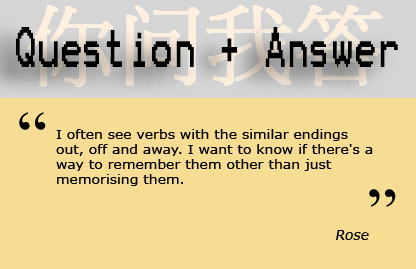|

|
Listen to this programme first and then read the content below. 请先听节目然后再阅读以下内容。
This week's question comes from Rose who wants some help learning phrasal verbs.
She noticed that some phrasal verbs have similar endings, such as off, out and away, and wonders whether this means phrasal verbs with these endings have similar meanings.
Finn said that unfortunately phrasal verbs with similar endings can mean very different things.
For example both these phrasal verbs end in off.
Kick off 开始
Clock off 下班
But they mean very different things. Kick off means to begin, while clock off means to finish working.
Tricky?
Sadly there are few shortcuts to learning phrasal verbs. But Finn offers three learning strategies to help you.
Here they are:
1. Learn new phrasal verbs in a sentence.
Put off 推迟
Sheila hated going to the dentist so she put it off and put it off, until she couldn't put it off any longer.
|

|
| Do you put off going to the dentist? |
2. Try to learn words that go together with your phrasal verb.
Put out 熄灭
Cigarette, fire. To put out a cigarette. He put out the fire.
3. Learn phrasal verbs in groups, for example:
3.1 By first verb - GO
Go out 离开,出去
Go away 离开,外出
Go off 不再喜欢,变质
3.2 Or by ending - OUT
Chill out 放松一下
Freak out 抓狂,疯掉了
Hang out 闲荡
3.3 Or by theme - USING THE PHONE
Hang up 挂电话
Call back 回电话
Hold on 稍等
We hope this helps you with learning phrasal verbs. If you have any other questions, please email them to questions@chinaelt.bbc.co.uk
Glossary 词汇
phrasal verbs 短语动词
endings 结尾
tricky 困难
shortcuts 捷径
learning strategies 学习策略
theme 题目

 本周问题与答案
本周问题与答案 Download the script of this programme 点击此处下载文字材料
Download the script of this programme 点击此处下载文字材料

